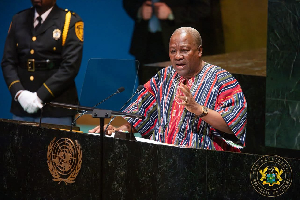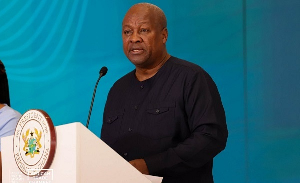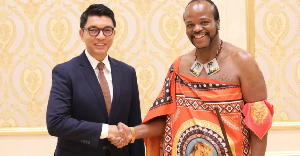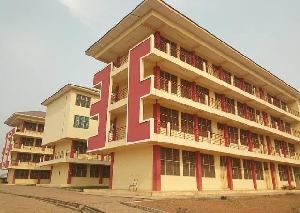The Ministry of Manpower Development and Employment (MMDE) has trained the first batch of 3,500 students from around the country under the Skills Training and Employment Programme (STEP) to enable them to create employment for themselves.
This forms part of the Ghana Poverty Reduction Strategy (GPRS), a comprehensive set of policies to support poverty reduction and growth over a three-year period from 2002 to 2004.
Under the STEP, young people with junior Secondary School (JSS) education undergo training in carpentry; dressmaking; batik and tie and dye making; food processing and mechanics among other things.
Mrs Angela Ofori-Atta, Deputy Minister of Manpower Development, said on Monday the Ministry would train 10,000 more students by the end of the
year, adding that they would be linked up with micro finance institutions to help them to start small businesses.
She was speaking at a workshop to discuss how to effectively implement the Decent Work Pilot Programme (DWPP) that ensures decent work for decent pay organised by the International Labour Organisation in partnership with the MMDE.
It was under the theme: Decent Work and Poverty Reduction in Ghana- MMDE's role in the Ghana Poverty Reduction Strategy.
Mrs Ofori Atta said about one million unemployed youth had registered with the Ministry under the President's Special Programme.
She said those, who could not benefit from the training would be taken through other courses like the President's Special Initiative training under which 600 youths would be trained.
Mrs Ofori Atta said a 10 billion cedis youth fund was ready for training and supporting the unemployed.
On the DWPP initiated by the ILO, she said the programme would be built on four pillars of labour rights, employment, social dialogue and social protection.
Ghana is the first country in Sub-Saharan Africa to implement the programme that would also promote opportunities for women and men to obtain decent and productive work in conditions of freedom, equity, security and human dignity.
Mrs Ofori Atta said the programme coincided with the new Labour Bill for Ghana that was before Parliament adding that it encompassed all labour legislation into one instrument and carefully outlined minimum conditions ofwork that were acceptable.
She expressed the hope that the introduction of decent work policies into the informal sector would improve the productivity, growth and potential incomes of micro and small non-farm enterprises in the rural and urban areas.Mr Cornelius Dzapkasu, West African Regional Director of the ILO, said there were a lot of unemployed youth in the Sub Region most of whom were not aware of plans by governments to train them.
He called on the MMDE to involve most of the youth in its programmes, as it would go a long way to eradicate poverty in the Region.
Mrs Rose Karikari-Annan, Executive Director of the Ghana Employers Association, called for the mainstreaming of the private sector into the poverty reduction strategy.
General News of Wednesday, 28 May 2003
Source: GNA
Ministry to Cut Down On Unemployment
Entertainment











